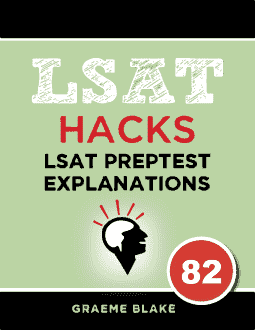QUESTION TEXT: Each major earthquake in this region has been preceded…
QUESTION TYPE: Flawed Parallel Reasoning
CONCLUSION: Major earthquake in the past ➞ preceded by minor tremors
REASONING: Minor tremors happened recently. So we will have a major earthquake.
ANALYSIS: This argument has two problems:
- We know that earthquakes have had minor tremors beforehand. However, it’s possible that there are often minor tremors without an earthquake.
- This is only a past relationship. We don’t know if it will always hold true. Maybe a major earthquake would one day strike without warning.
A parallel argument: “Every day you found money lying on the ground, you were out walking. Today, you are out walking, so you will find money”. See the flaws?
Walking is common, finding money is rare. While walking precedes finding money, you don’t find it often. As a second flaw, it’s also possible to find money while biking, driving, skateboarding, etc. so that could happen one day. To parallel this, look for both flaws.
Note: I’m treating the relationships on this question as conditional relationships. But note that they actually aren’t. “Major earthquake ➞ minor tremors” is just a past relationship. It doesn’t predict the future necessarily. However, for the purposes of analysis it is way easier to draw it as conditional but remember it isn’t quite.
___________
- Tropical storm ➞ hurricane
Conclusion: tropical storm ➞ hurricane
This is an incorrect negation. It isn’t the flaw from the stimulus. That was an incorrect reversal.
This does have the secondary flaw of treating past relationships as definitively predicting the future. (Though the “to be expected” lessens that somewhat too) - This argument correctly goes from sufficient to necessary! The statement is: record snowfall ➞ river overflow. The conclusion is river overflow.
This does have the flaw of assuming the past predicts the future, but we need both flaws. The stimulus incorrectly went from necessary to sufficient. - This is a fairly plausible argument with no obvious error. The only possible problem with it would be if there was some reason that these planets’ experience wouldn’t apply to earth. The evidence is “heavy metals ➞ meteor bombardment”. If this applies to Earth, the conclusion is solid.
- I eliminated this because it said “always” results. That indicates a true conditional statement, whereas the stimulus only had a time based tendency that wouldn’t necessarily hold true in the future.
This is a good argument. It applies a fact correctly to a conditional. To be right, this answer would have had to do two things differently:1. Reverse the conditional, and
2. State the conditional as “So far, the introduction of non-native species has always resulted” ➞ with these additions, the sentence is no longer a conditional and instead just a past relationship that may not be true in the future - CORRECT. This matches exactly. The evidence about the outbreaks is only what has happened so far, so they don’t necessarily predict the future. Also, this argument reverses sufficient and necessary.
To show how the argument parallels, I added the parallel parts from the original in brackets.
Evidence: Local outbreaks in the past (earthquake in the past) ➞ high infection rates in the past (tremors in the past)
Incorrect reversal conclusion: Local infection rate detected (tremors detected), so a local outbreak will happen (earthquake will happen).
Recap: The question begins with “Each major earthquake in this region has been preceded”. It is a Flawed Parallel Reasoning question. Learn how to master LSAT Flawed Parallel questions on the LSAT Logical Reasoning question types page.


Leave a Reply